Setting Stronger Foundations for Ending the HIV Epidemic in The Windy City
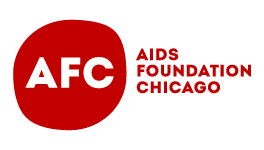
The last three years have brought tremendous change to public health and society as a whole. COVID-19, along with the racial justice reckoning of 2020, forced an abrupt pause in business as usual, thrusting donors, agencies, AIDS service organizations, and clinics into overdrive. The AIDS Foundation Chicago (AFC) was no exception. Policies, procedures, and practices all called for re-evaluation. As AFC workers and the communities they serve demanded greater equity, the organization’s policies and practices called for re-evaluation. A deep diagnostic assessment was necessary to chart AFC’s path forward.
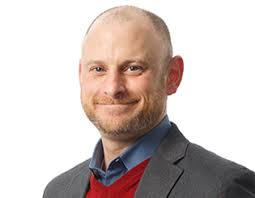
Much like other organizations, the Great Resignation did its damage, yet according to AFC’s President and CEO John Peller, they were able to reset to improve racial equity. Peller stands at the helm of the 140-person-strong staff. To better support its team, the foundation devised a racial equity plan that included investing $1 million to raise take-home salaries to match market value.
Peller, who was raised in New York City during the 1970s and ‘80s, came out as gay at the time while the HIV epidemic was “looming over my head, all of our heads.” He recognized HIV as the biggest threat to LGBTQ people; however, he wasn’t sure of how to offer his unique policy skills to the fight. Graduate school brought him to Chicago where he started in child welfare. All the while, he kept his sights on HIV policy. He volunteered with the AIDS Marathon hosted by AFC. Through his participation in the marathon’s fundraising, he learned more about AFC’s work especially in AIDS policy. It finally clicked.
“This is what I want to do with my life,” he said.
After serving as AFC’s state policy director, Peller has been CEO for eight years now, and is responsible for strategizing how best to guide AFC’s contribution to the Ending the HIV Epidemic in the U.S. Initiative (EHE). Chicago is in one of 57 priority jurisdictions directly funded by the U.S Department of Health and Human Services under EHE, and is a focus in Illinois’ state-wide plan Getting to Zero Illinois (GTZ-IL). This is a partnership of community-based organizations, health care providers, the Chicago and Illinois Department of Public Health, and AFC. The main objective: no new cases of HIV by 2030. The method: increasing PrEP (pre-exposure prophylaxis) uptake by 20 percentage points and viral suppression by 20 percentage points.
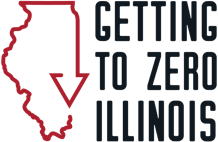
Peller describes pre-pandemic Chicago and Illinois as making pretty substantial progress in reducing new HIV cases – about 20 percent down in Chicago and 26 percent statewide respectfully, which calls for praise and pressure. However, said progress must continue, he said.
“We’re not going to end the epidemic if we just end it among white people. And we’ve got to see the same declines, particularly among Black and Latinx gay men and MSM if we’re going to get there,” he said.
GTZ-IL’s mission is four-fold. The project wants to first end racial health disparities, then promote health equity. In addition, GTZ-IL aims to state policy and secure increased funding. The initiative served as a rallying cry that helped AFC to advocate for and secure $10 million in the 2022 state budget for Getting to Zero Illinois—an accomplishment that “continues to floor” Peller. “Our legislative champions in Springfield understand that new resources are needed to make progress towards dramatically cutting new HIV cases,” Peller noted.
“We advocated for a major portion of that funding to go to housing for people living with HIV knowing that housing is probably the number one social determinant of health and stability. Obviously, we’re in a housing crisis in America,” Peller adds. “This $10 m state investment is groundbreaking. It’s the largest single-year state funding investment in HIV in Illinois, that we’re aware of, which is amazing. We are really excited about the opportunities to spend this money in new and different and innovative ways to address the HIV epidemic.”
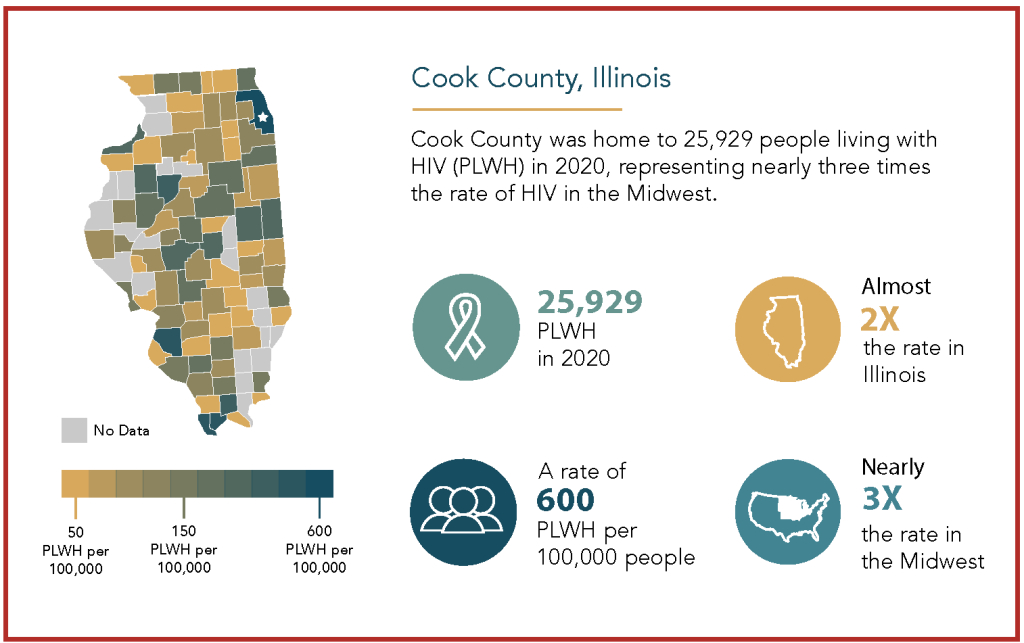
Donors, ranging from individuals to fellow foundations to pharmaceutical companies, have bolstered GTZ-IL’s reach. In 2021, AFC provided $350,000 in grants to 14 organizations, 10 of them Black or Latinx-led, which are focused on building infrastructure and programs under the GTZ-IL banner. One of the groups, Project Vida, does exceptional work to improve quality of life and reduce disparities, Peller says. Under GTZ-IL, they were funded for outreach to Black and Latinx gay men who are using meth and engaging them not just in HIV prevention services and in harm reduction, but also providing a support hotline. More traditional funders in the HIV space might not have seen the value in this program.
Moreover, in 2022 AFC provided $2.3 million in grants and contracts to Black and Latinx-led organizations. “While we are proud of that number, it’s certainly not enough. We’ve set the goal of increasing that funding amount by 10 percent this year,” he said. “You can ask me in a year if we’ve achieved that, but it’s part of our racial equity work and also our commitment to racial equity.”
AFC has also established learning collaboratives designed to help build capacity along with technical assistance. Thanks to funding from the J.B. and M.K. Pritzker Family Foundation, AFC launched a learning collaborative with six health centers in Chicago, three of which are Black or Latinx-led. These health centers provide care in areas with high rates of HIV and STIs; however, they may need support in PrEP navigation or want LGBTQ cultural competency training for staff.
“At the heart of one of the issues we want to address around racial equity is making sure that if someone who’s living with HIV or who wants to get on PrEP wants to get services in their own neighborhood, they can do that,” Peller said. “The organizations that we’re working with have a presence, have that physical presence, and we’re helping them be more welcoming to the LGBTQ patients who are already coming through their doors but maybe not out to their providers.”
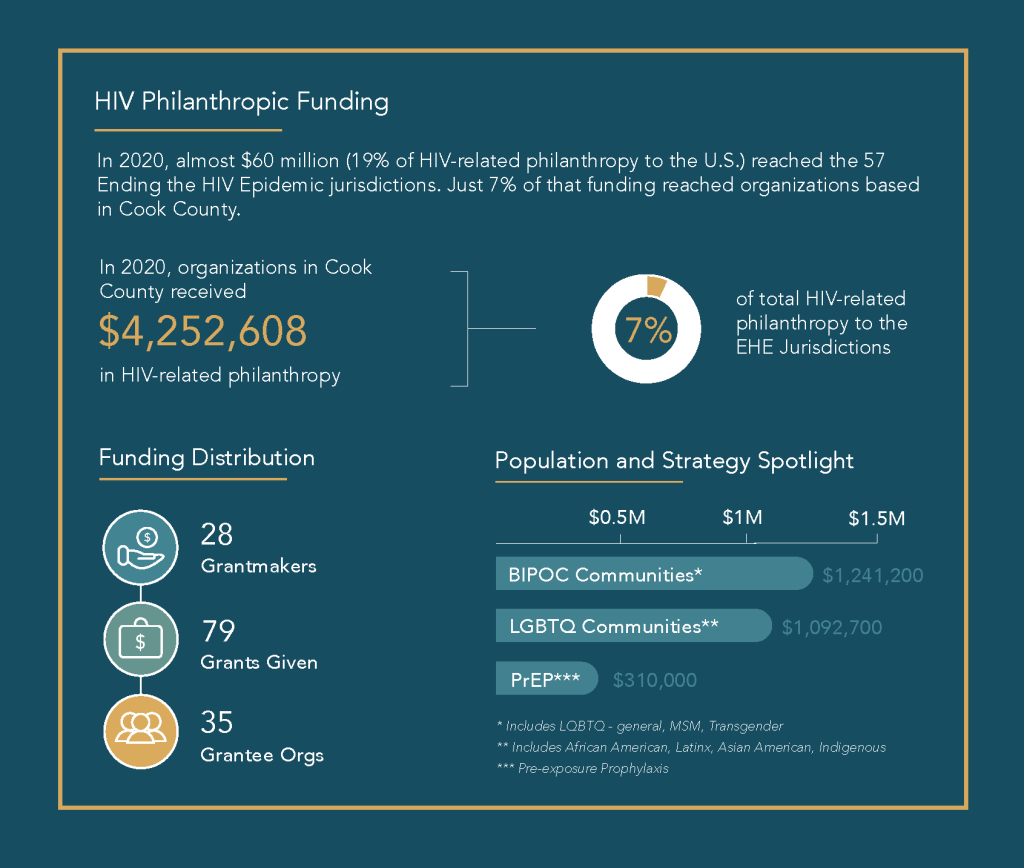
For Peller, GTZ-IL is about looking at the landscape and figuring out where some of the gaps are. Peller and AFC remain determined to reach those in need of services. The foundation continues to host learning collaboratives, as well as virtual funder meet-and-greets that invite program officers from a variety of foundations to log-on to Zoom meetings with the Latinx and Black-led organizations that AFC supports.
“This is such a great example of how the world of philanthropy needs to change and to recognize the work that these small, often under the radar, organizations are doing. They need general operating dollars to build the infrastructure that they need in order to grow and in order to thrive. We know that government dollars don’t cover enough and don’t allow enough operating support,” he said.
AFC’s work continues. Not only externally among its community partners but internally for its staff. Peller says the foundation has had to improve work-life balance for its staff. The staff fuel and drive the work. Their well-being is paramount.
“I think we were all working to find more joy these days,” he said.